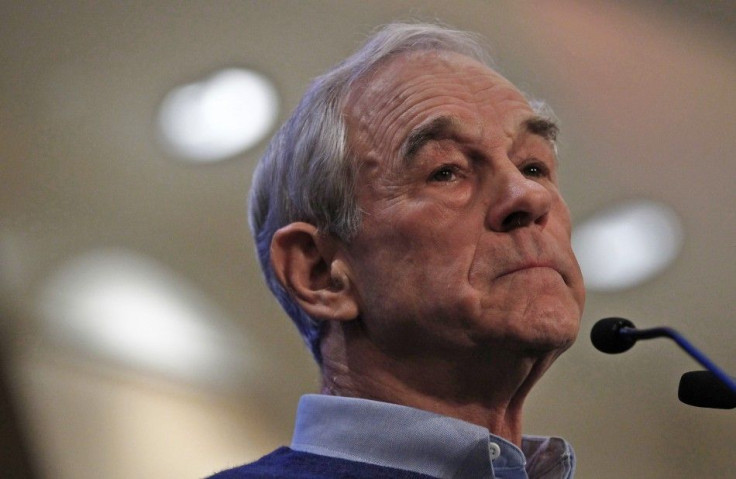Ron Paul's 2012 Campaign Dead If Nebraska Delegates Don't Go His Way

Ron Paul's 2012 campaign for the GOP presidential nod is officially dead in the water if he can't pull off a coup Saturday at Nebraska's state convention.
Ron Paul -- the only remaining challenger to presumed Republican presidential nominee Mitt Romney -- suspended active campaigning in May, but he has continued to pursue a convention delegate strategy in hopes of having an influence on the GOP's platform.
And by doing so, he has continued to remain relevant until a much later point in the 2012 presidential race than any of Romney's other rivals, from Newt Gingrich to Herman Cain.
In fact, though many people are not aware of this fact, Ron Paul is, at this writing, still in the running to be placed in nomination at the Republican National Convention this August in Tampa, Fla., by virtue of his delegate-gathering strategies.
But it all comes down to Saturday, when Nebraska delegates will cast their ballots to determine who the state's official pick for the Republican nominee will be.
If Ron Paul wins a plurality of Nebraska delegates Saturday, he will be an official challenger to Romney at the Republican National Convention, according to NBC News. If Paul fails to achieve this feat, he will officially not be listed on the RNC ballot. AKA: his campaign will be dead.
After his May suspension announcement, the Texas congressman stopped spending campaign funds on the remianing Republican primaries, but he has continued to work to rack up delegates.
Through those delegate-collecting efforts, he and his legion of hard-core supporters hope that they will be able to drive the direction and platform of the Republican Party as it rallies for a hard-fought general election campaign against President Barack Obama, even if Ron Paul is the nominee.
Our campaign will continue to work in the state convention process. We will continue to take leadership positions, win delegates, and carry a strong message to the Republican National Convention that liberty is the way of the future, Paul said at the time of the May announcement, according to USA Today.
Moving forward, however, we will no longer spend resources campaigning in primaries in states that have not yet voted. Doing so with any hope of success would take many tens of millions of dollars we simply do not have, he said.
When his campaign halted its active campaign efforts in May, Ron Paul 2012 effectively ceded the popular vote to former Massachusetts Gov. Mitt Romney.
But Ron Paul and his staffers have long said their goal was not to win the popular vote but to attempt to influence the election, or even secure the GOP nomination, through the process of getting state delegates to the RNC to support him.
Even if he doesn't win the official nomination, Paul has made a splash in this year's nominating process, getting the nods of 20 of 24 delegates in Minnesota, and notching sizable delegate hauls in other states including Iowa, Nevada, Washington and Alaska.
One of the key factors that allowed Ron Paul 2012 to continue to rack up delegates was the level of anyone-but-Romney sentiment that remains in the party's more conservative corners. As the party has lurched rightward in recent years, libertarian and ultra-conservative groups have gone from the fringes to the mainstream, which only helped Paul.
As voters who previously supported former GOP candidates like Newt Gingrich, Rick Santorum, Michele Bachmann, Rick Perry and Herman Cain weighed the two remaining official candidates, many of them joined the Paul camp out of dissatisfaction with the policies of Romney.
© Copyright IBTimes 2024. All rights reserved.











